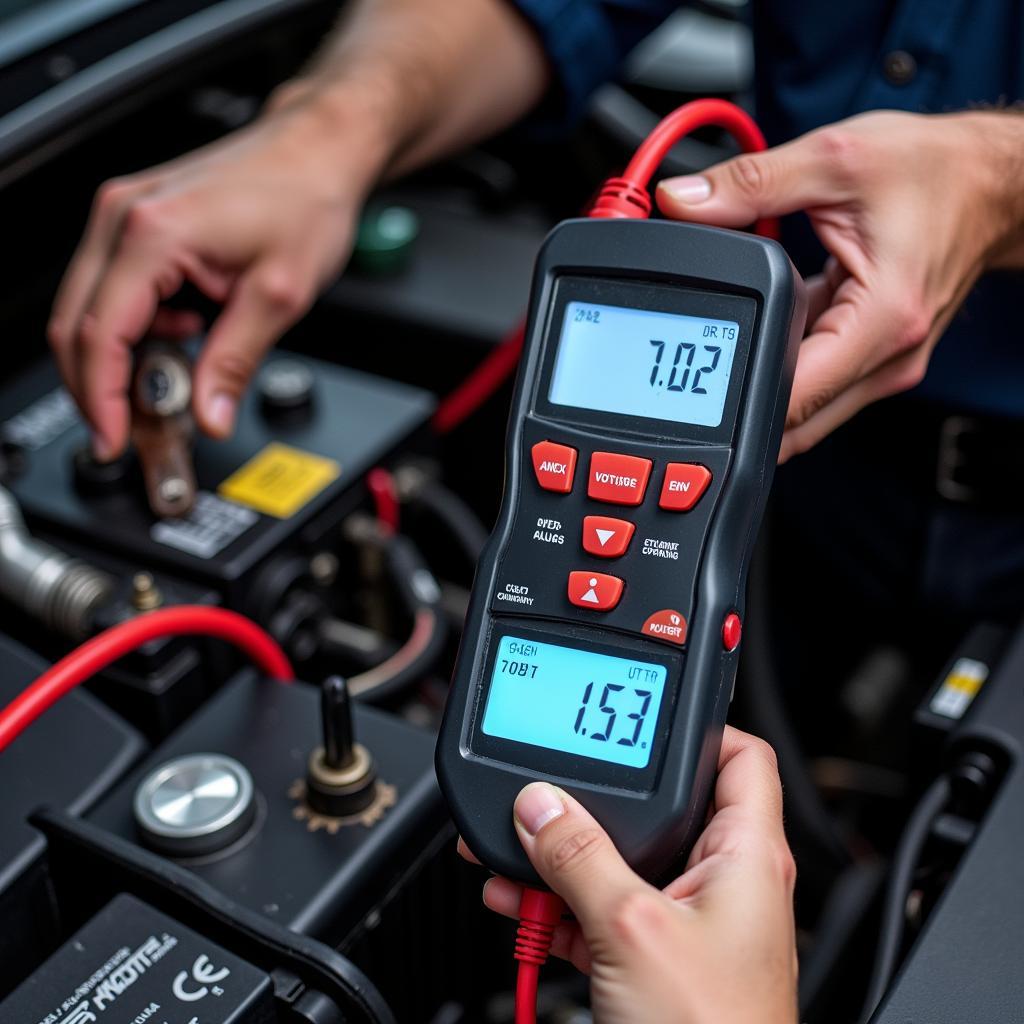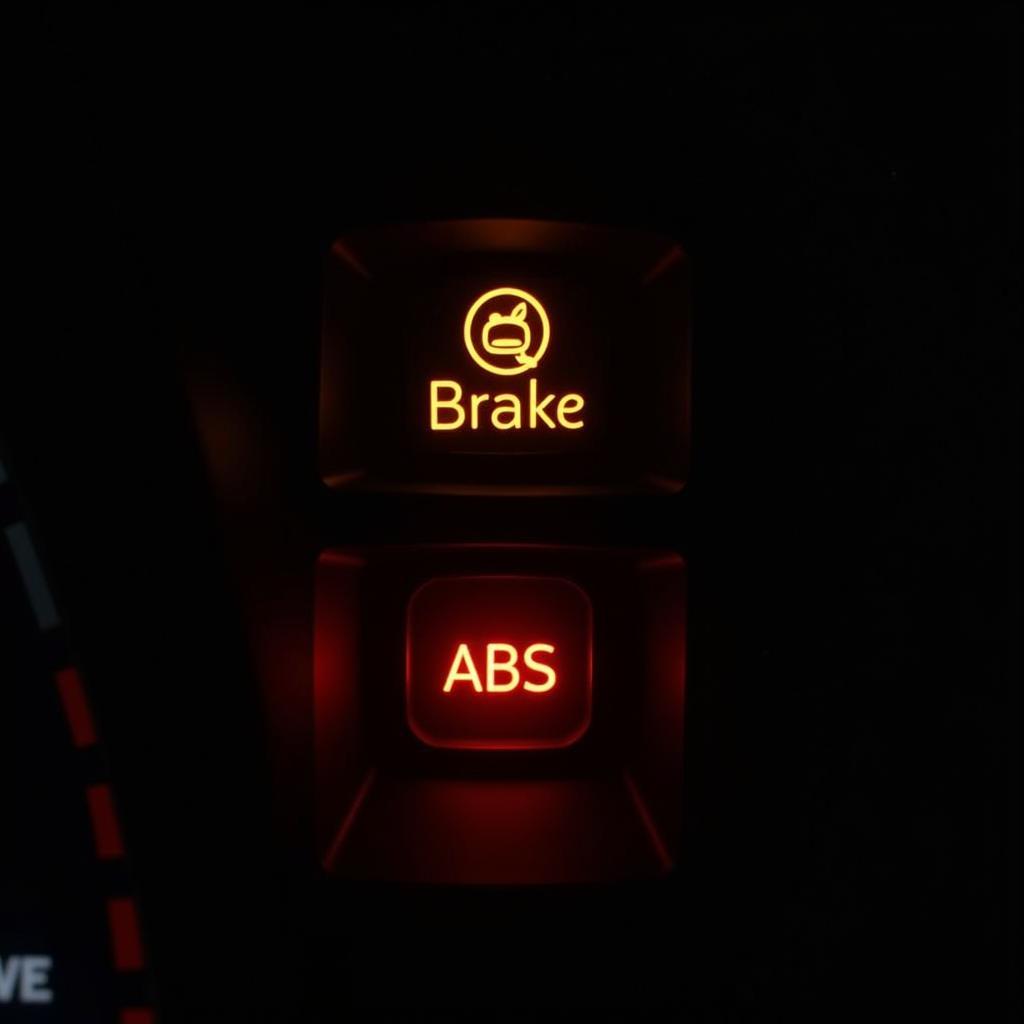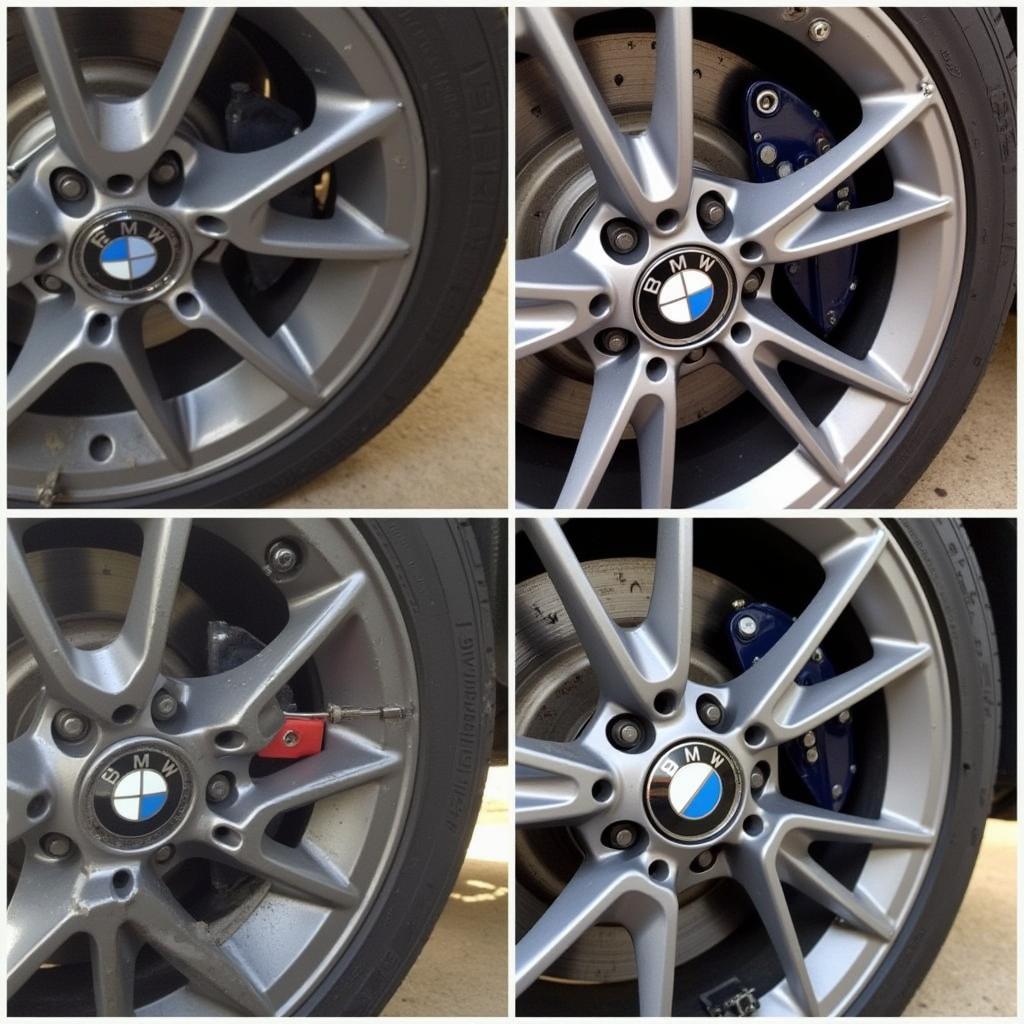A dead car battery in the morning is frustrating. Understanding the causes for car battery draining overnight is key to preventing this inconvenience. From parasitic draws to failing alternators, various factors can contribute to this issue. This article will delve into the common culprits behind overnight battery drain, offering troubleshooting tips and solutions to keep your car starting reliably every time.
Common Culprits Behind a Dead Car Battery in the Morning
Several factors can contribute to your car battery draining overnight. Let’s explore some of the most frequent offenders.
Parasitic Draw: The Silent Battery Killer
A parasitic draw occurs when electrical components continue to consume power even after the car is turned off. This can range from a faulty interior light to more complex electronic systems. Identifying and eliminating these draws is crucial to preserving battery life.
- Interior Lights: A simple dome light left on can significantly drain a battery overnight. Check all interior lights, including the glove compartment and trunk, to ensure they’re off.
- Faulty Electronics: Malfunctioning electronic components, such as radios, GPS systems, or alarm systems, can draw excessive power even when the car is off.
- Aftermarket Accessories: Improperly installed aftermarket accessories, like amplifiers or dashcams, can create parasitic draws. Ensure professional installation for any add-on electronics.
Failing Alternator: The Unsung Hero
The alternator recharges the battery while the engine is running. A failing alternator won’t effectively charge the battery, leading to a gradual drain and eventually a dead battery.
- Warning Signs: Dim headlights, flickering dashboard lights, and unusual noises from the engine compartment can indicate a failing alternator.
- Testing the Alternator: A simple voltage test can determine if the alternator is functioning correctly. A professional mechanic can perform this test accurately.
Extreme Temperatures: The Battery’s Nemesis
Extreme temperatures, both hot and cold, can impact battery performance. Extreme heat can accelerate battery degradation, while extreme cold can reduce its capacity to hold a charge.
- Protecting Your Battery in Extreme Temperatures: Parking your car in a garage or using a battery blanket during cold weather can help protect the battery from extreme temperature fluctuations.
Old Age: The Inevitable Factor
Like any other component, car batteries have a limited lifespan. Over time, the battery’s ability to hold a charge diminishes, making it more susceptible to draining overnight.
- Signs of an Aging Battery: Slow engine cranking, dim headlights, and a clicking sound when turning the key are common signs of an aging battery.
- Regular Battery Testing: Periodically testing your battery’s health can help you identify potential issues before they lead to a breakdown.
Troubleshooting a Draining Car Battery
If you’re experiencing overnight battery drain, here are some troubleshooting steps you can take:
- Check for Obvious Draws: Inspect all interior and exterior lights, ensuring they are turned off.
- Disconnect Accessories: Disconnect any recently installed aftermarket accessories to see if they are contributing to the drain.
- Perform a Parasitic Draw Test: Use a multimeter to measure the current draw with the ignition off. This test can help pinpoint the source of the drain.
- Have Your Alternator Tested: If you suspect a failing alternator, have it tested by a qualified mechanic.
Expert Insights on Car Battery Drain
“A common mistake people make is assuming a new battery solves the problem. Often, the underlying issue, like a parasitic draw, remains and continues to drain the new battery,” says John Smith, Automotive Electrical Engineer at Acme Auto Solutions. “Proper diagnosis is key to a long-lasting battery.”
“Extreme temperatures are often overlooked. Heat can be just as damaging as cold to a car battery,” adds Jane Doe, Lead Technician at Reliable Auto Repairs. “Protecting your battery from temperature extremes can significantly extend its lifespan.”
 Testing a Car Battery
Testing a Car Battery
Conclusion
Identifying the causes for car battery draining overnight is essential for maintaining a reliable vehicle. By understanding the common culprits and implementing the troubleshooting tips outlined in this article, you can keep your car starting strong every morning. Regular maintenance and timely repairs can prevent the frustration and inconvenience of a dead battery. Don’t let a dead battery ruin your day – take proactive steps to ensure your car’s electrical system is in top shape.
FAQs
- How long should a car battery last? Typically, a car battery lasts between 3 and 5 years.
- Can I jump-start my car if the battery is drained? Yes, you can jump-start a car with a drained battery, but it’s essential to address the underlying cause of the drain.
- How can I prevent my car battery from draining overnight? Ensure all lights are off, disconnect unnecessary accessories, and have your alternator checked regularly.
- Is it safe to drive with a failing alternator? Driving with a failing alternator can be dangerous, as it can eventually lead to a complete electrical system failure.
- What are the signs of a parasitic draw? A dead battery overnight, dim headlights, and slow engine cranking can indicate a parasitic draw.
- How much does it cost to replace a car battery? The cost of a car battery replacement varies depending on the vehicle and battery type, but it typically ranges from $100 to $300.
- Can I test my car battery myself? Yes, you can test your car battery using a multimeter or a battery tester.


